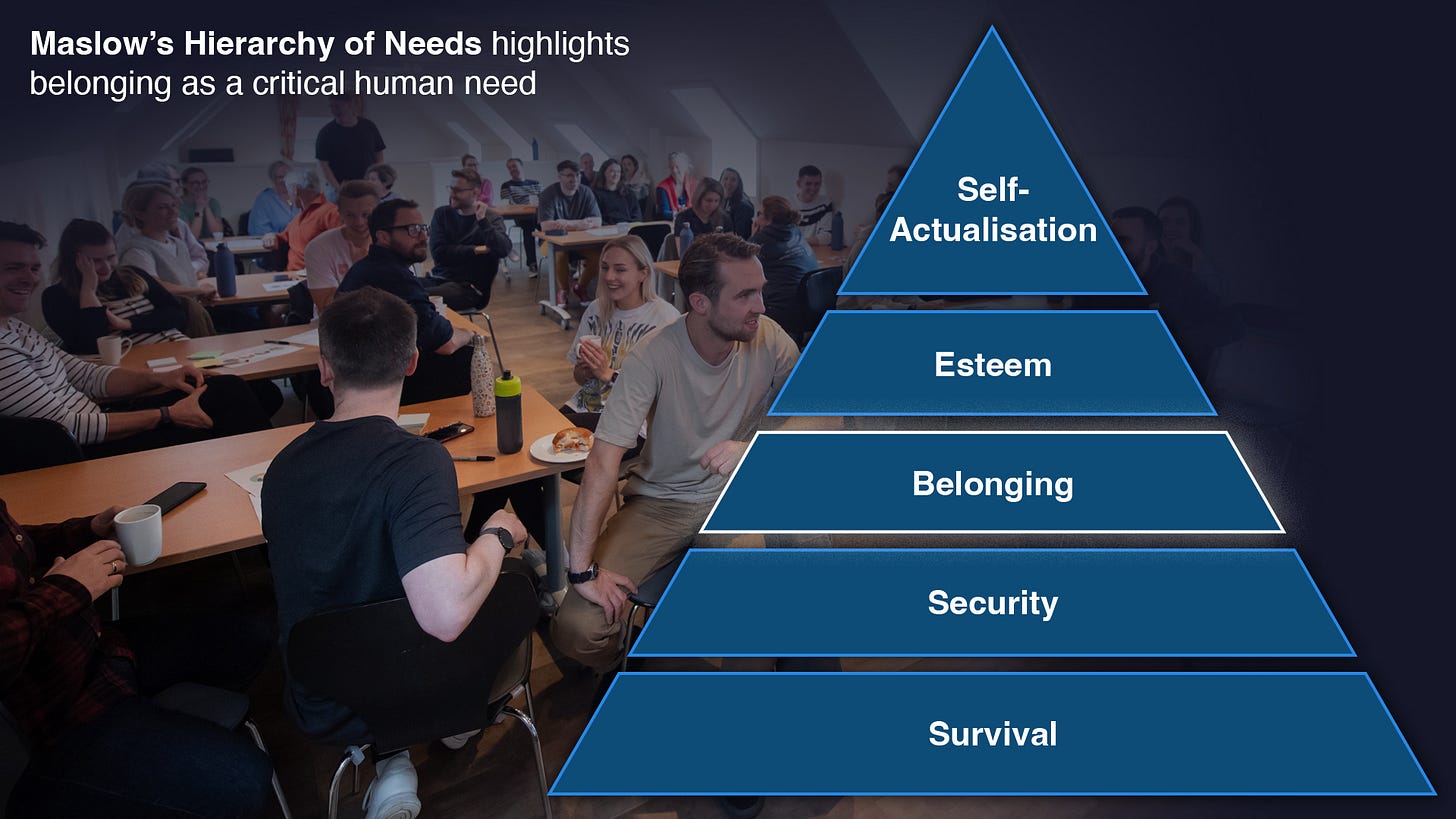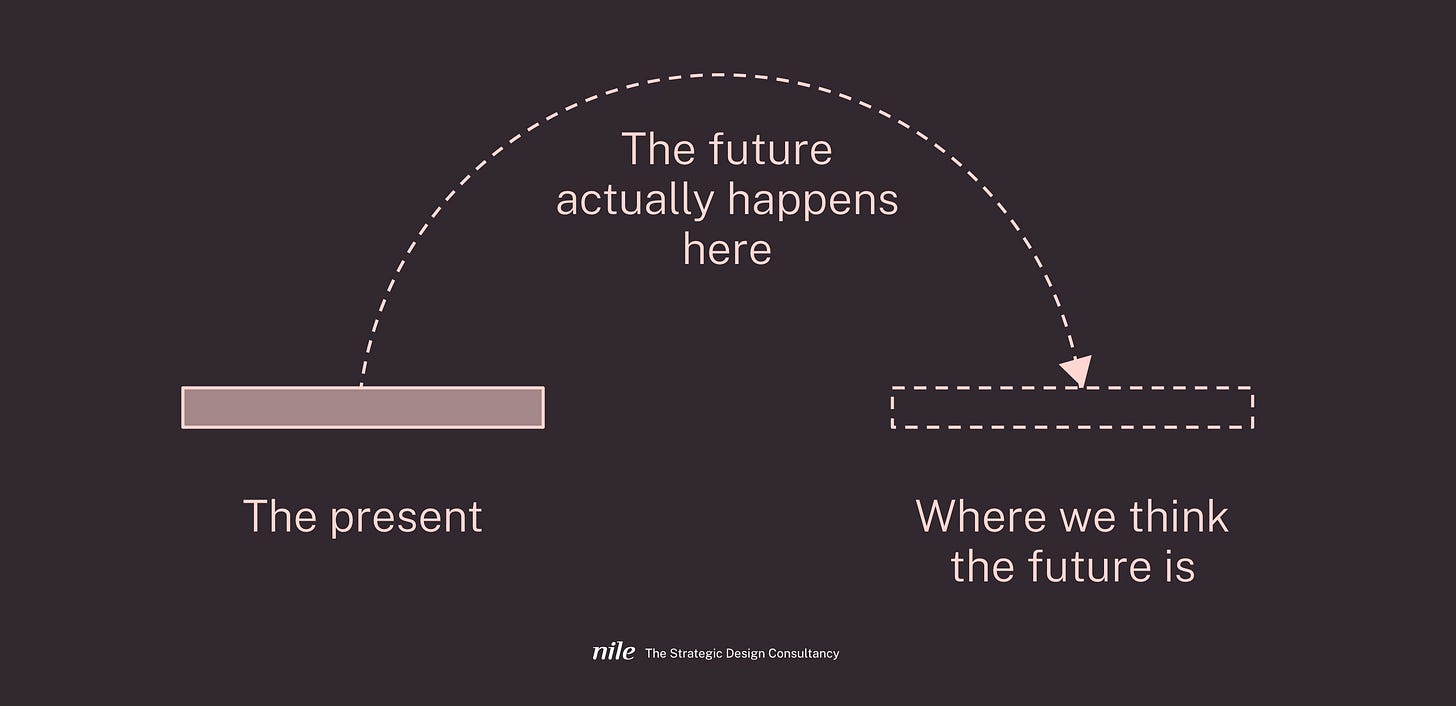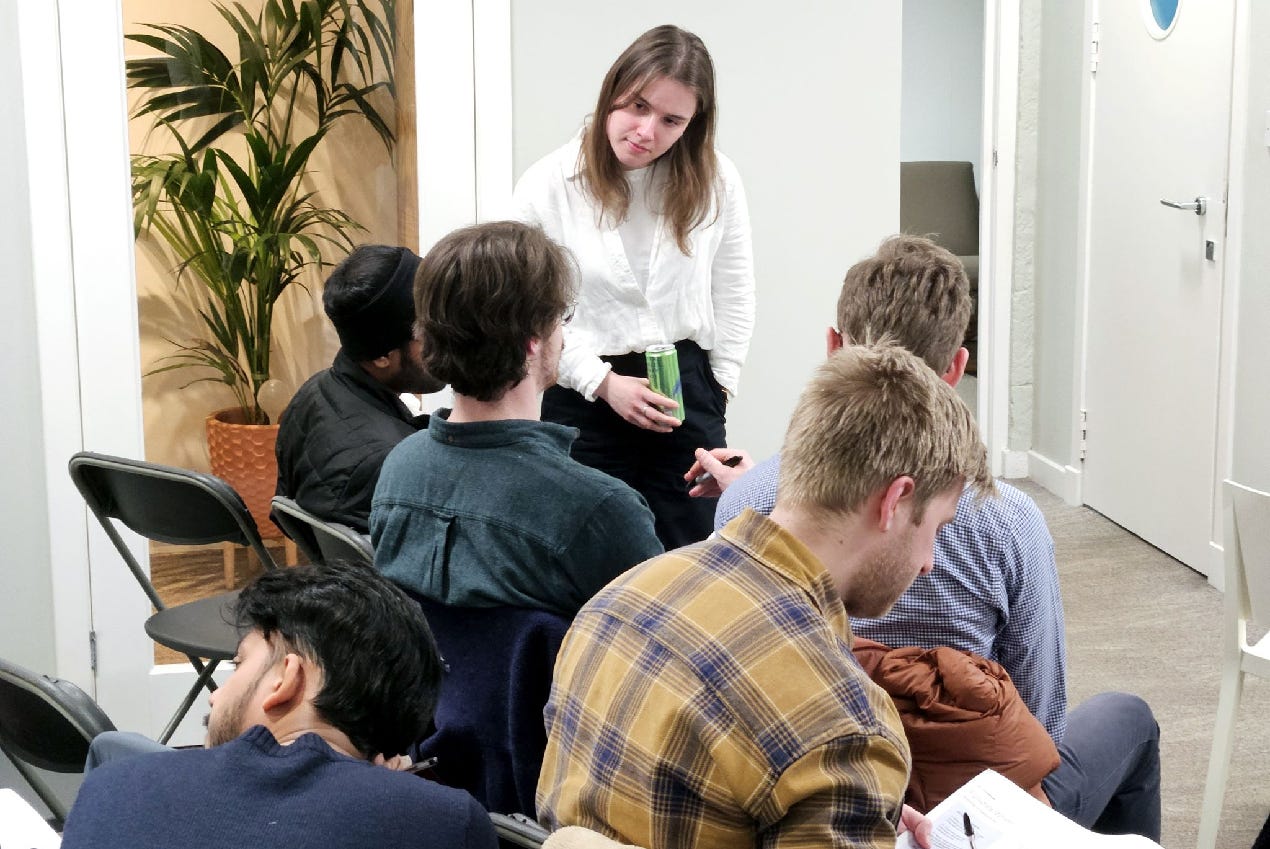The psychology of belonging 🫂✨
Belonging goes beyond traditional inclusion to address a deeper human need
Welcome to The Navigator 🧭 - a newsletter about people, technology and design for business leaders who want to make meaningful change. I’m Sarah Ronald, and I write this newsletter with the Nile team. If this email was forwarded to you, you can subscribe here to receive it straight to your inbox.
Hello! 👋
This month we’re thinking about a newish term that’s increasingly being used alongside Diversity, Equity and Inclusion: Belonging.
Why does this matter? Well, it turns out that feeling like we truly belong dramatically enhances job performance, limits turnover risk, and even reduces sick days. It's about connecting on a human level and going deeper than traditional DEI by tapping into a really fundamental human need.
Stick to the end for news from Nile, including a recent UX Meetup we hosted, and a round-up of the latest insights shared by our team.
Wishing you all the best as you navigate your week,
–
Where do you belong?
Thinking about belonging addresses inclusion in a deeper way
For most businesses, Diversity, Equity, and Inclusion (DEI) are vital goals. But a powerful new concept is not just joining the DEI conversation but starting to redefine it: Belonging.
You might already have spotted job titles like "Belonging, Equity and Impact Manager" or "Head of Employee Belonging & Engagement" popping up on LinkedIn. These aren't just trendy new labels; they represent a change in how businesses approach inclusion, combat workplace isolation, and help every employee feel a deeper sense of acceptance, involvement and empowerment.
Asif Sadiq, the Telegraph's former Head of Diversity, Inclusion and Belonging, has referred to belonging as 'the missing ingredient of DEI'.
Belonging taps into something more primal than traditional DEI – a yearning that we all share as human beings. In that respect, it could prove to be a more useful and powerful way of approaching inclusion than ever before.
Arguably, belonging is itself a basic psychological need without which it’s impossible to build self-esteem. It’s right there on Maslow's Hierarchy of Needs, the pyramid beloved of armchair psychologists and business speakers alike, placed after only basic needs like security and survival. Research published in the Harvard Business Review shows that a high sense of belonging at work is linked with a 56% increase in job performance, a 50% drop in turnover risk, and a 75% reduction in sick days. Nurturing belonging isn’t just good for people, it's good for the bottom line.
Roots of belonging
To understand how fundamental belonging is to the human experience, you only have to look at the word itself.
English is tremendously diverse, with nearly 60% of its vocabulary borrowed from French and Latin. Yet, if you look at our day-to-day speech, almost everything we say to each other comes from Old English and its Germanic roots – such as this line, each word of which has its roots in that tongue.
That’s a contrived example, but you get the idea: words from French and Latin can augment our speech or let us express things more precisely, but when it comes to sharing feeling and meaning, Germanic words are where it’s at.
Unlike ‘diversity’, ‘equity’ and ‘inclusion’, all of which have their roots in Latin, ‘belonging’ is a relic that came into English from the same ancient place as words like longing. To be included is to be allowed to take part; to belong is to actually be accepted as part of the tribe.
Diversity and inclusion are valuable means to an end, but belonging is the end itself, a profound sense of mattering and being valued for who you truly are.
Belonging even combats grey days
Without belonging, even mild adversity – such as having a bad day at work – can compound and make you feel like you’re in the wrong place. That damages wellbeing and morale, and ultimately impacts the organisation’s retention and even reputation.
Conversely, belonging gives you a deeper connection with your colleagues and the place you work. That sense of structure and support will help you weather the storm, or even equip you with the tools to speak up and make changes that get things back on track.
Feelings of isolation were already reported as being endemic in the workplace before hybrid/remote working became the norm. “In a bustling office I feel entirely alone,” an anonymous office worker told the Guardian in 2016. At the time, HR practitioners suggested the cure was more employee assistance programmes and ‘creating a fun culture’.
But to really defeat isolation, fostering a sense of belonging is critical. This has to come from your culture – not necessarily ‘fun culture’, but crystal clarity around your business’s values and beliefs.
Creating a culture of belonging
Creating a sense of belonging requires businesses and staff to meet in the middle. Each person you recruit should be a cultural addition, bringing something new and different to the table. But equally, an element of cultural fit is important, as the company can’t change its values to accommodate every employee’s personal needs and values.
In last month’s Navigator, we shared some insights from an event we co-hosted with Scottish Financial Enterprise, which looked at how startups can attract and retain talent. Again and again, clarity around culture and purpose was cited as the number 1 way of attracting and retaining talent.
For us at Nile, that cultural starting point is always our core model. Back in 2011, as our team increased in size, we created the core model together to help us build the company. It’s evolved ever since then.
The core model has become our company’s DNA. It’s what we collectively believe in, and acts as the foundation for how we think and act as a business. It’s part of every key decision we make, from how we recruit, to planning our team trips and informing our strategy. It looks beyond our commercial goals to our purpose as a company, the impact we want to have and the principles that shape how we work.
All this means that, by the point someone applies to work with us, they already have a very clear sense of what we’re about and who they’re choosing to work with, because it’s infused in everything we do.
That culture is foundational to allowing a sense of belonging to develop. If your team can’t articulate what your business is for – the change it intends to make in the world, and the principles it values and upholds – then how can they feel part of a coherent whole?
When your best employees feel their values are reflected in their organisation's culture, they are more engaged, more productive, and much more likely to stick around.
Diversity and inclusion initiatives are vital, but belonging goes deeper. It taps into our human need to feel accepted and valued for who we really are.
By fostering a true culture of belonging where every employee feels accepted, valued and part of the group, your organisation will unlock the full potential of their diverse talent and build an unstoppable force for positive change.
Nile News
Predicting the future at the Edinburgh UX Meetup
Predicting the future is notoriously tricky. People tend to think of the future as being separate from the present, when really the early signs of what's next are hidden in the now. Short of a crystal ball, though, having some frameworks for futures thinking can really help uncover where we might be heading.
With this in mind, we welcomed a packed Edinburgh UX Meetup to our offices at Circus Lane earlier this month. The Nile team shared a potted overview of futures thinking, plus some top techniques for exploring not just what’s on the horizon, but what lies far beyond.
A simple framework for futures thinking
Futures thinking involves looking at signs of change, and forecasting whether that change is possible, probable, or unlikely. You need to consider:
Drivers of change, such as the ageing population, AI, and the climate crisis;
Signals of change, such as news stories where the drivers are impacting the real world
‘STEEP’ - exploring how these drivers and signals combine with Social, Technological, Environmental, Economic and Political factors.
For designers, it’s a relatively short step from traditional ideation sessions to this STEEP-based futures thinking process. You can find out more about this approach from our friends at the Institute for the Future (IFTF).
Thanks to organisers Mike Jefferson & Ricky Callaghan for giving us the chance to host the vibrant Edinburgh UX Meetup community.
Linked-Insights
You’re probably already following Nile on LinkedIn (right?) but we thought we’d share some insightful posts made by our team recently:
Luke McKinney, our Director of Consulting, posted about a technique for ensuring the best idea ‘wins’ – not the loudest voice in the room.
Knowledge Manager Ellie Raeburn asked about tacit knowledge — how are you sharing knowledge inside your organistaion?
Kay Cochrane, Senior Designer, talked about the satisfaction of a job well done.
…and Head of New Business Robyn Johnston opened up a discussion about what it takes to be a great consultant.
We’d love to see your views – do get invovled and let us know what you think!
That’s all for this issue - if you find The Navigator valuable, please spread the word by sharing it with your friends and colleagues:
About Nile
Nile is a Strategic Design team that helps deliver human-centred change in highly regulated industries. Our methods engage employees and customers with new technology and ways of working. Our outcomes help you save money and improve your business performance.
If you think we can help your teams, reply directly to this email (they come straight to my inbox), or reach out to someone specific via our website.
Thanks for reading! 🚀











